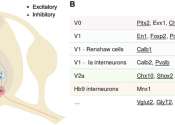Study reveals evolution of human cold and menthol sensing protein, offers hope for future non-addictive pain therapies
Chronic pain affects millions worldwide, and current treatments often rely on opioids, which carry risks of addiction and overdose. Non-addictive alternatives could revolutionize pain management, and new research targeting ...
Jun 21, 2024
0
57



